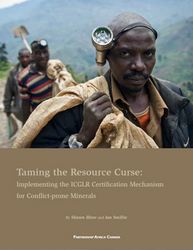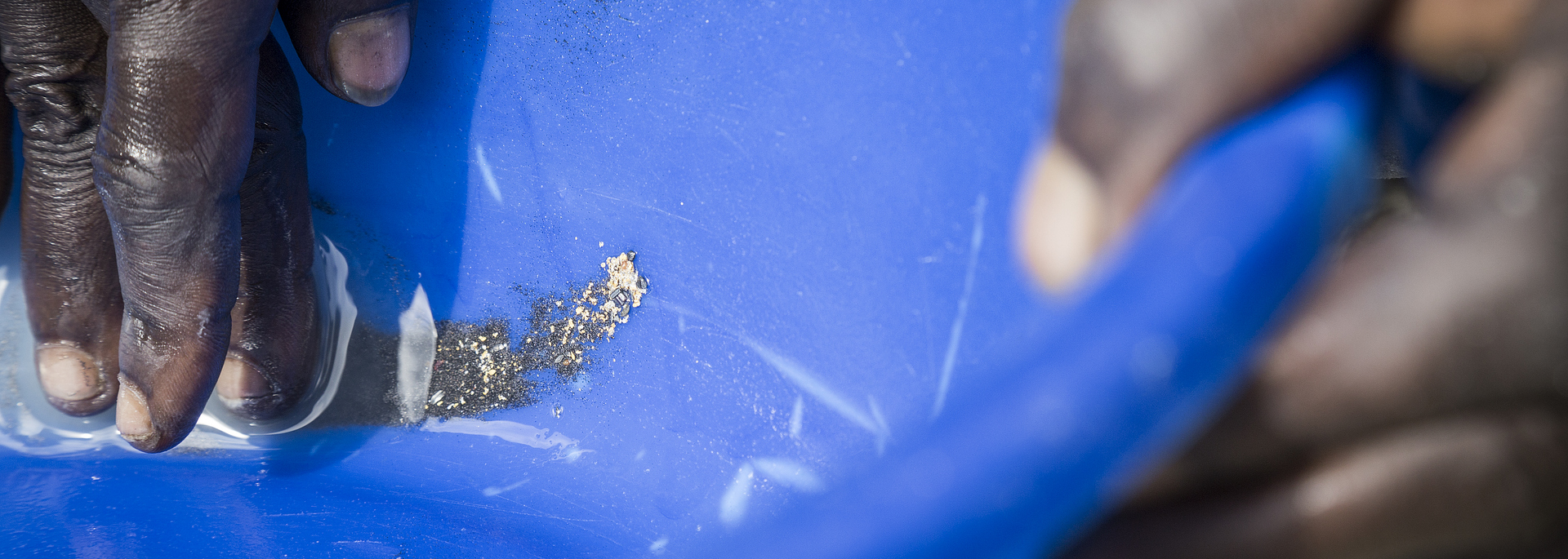
IMPACT in Uganda
Our work in Uganda focuses on providing technical guidance to develop new approaches to natural resource management. IMPACT’s Anglophone team for the Great Lakes region is based in Uganda, with an office in Kampala.
Uganda has a large mining sector, and a recent history of relative stability and economic growth, but issues of corruption and the poor distribution of the benefits from natural resources are increasing the risk of violence and instability in the country.
Poverty is a significant challenge in Uganda, and natural resource use and exploitation has a significant impact on the densely populated country. A majority of the population still face a lack of education, health services, and poor living standards. Pollution, weather changes, and the impact of climate change—such as droughts—threaten agriculture and livelihoods. Though a National Forestry and Tree Planting Act was enacted in 2003, deforestation continues to be a significant problem, along with habitat destruction, poaching, and the illegal wildlife trade.
Artisanal mining is a key source of income for many communities in Uganda and the country has also been implicated in the cross-border illicit trade of minerals originating from Democratic Republic of Congo. Uganda is now taking steps to transform its natural resource management systems. Uganda is a member of the International Conference on the Great Lakes Region (ICGLR) and in 2010, the country’s President signed the Lusaka Declaration with 11 other Heads of State approving the Regional Initiative against the Illegal Exploitation of Natural Resources (RINR).
Resources
Uganda’s key natural resources include copper, cobalt, limestone, salt, gold, and water, as well as largely untapped reserves of crude oil and natural gas.

We Reveal
Our research in the Great Lakes region investigates the drivers of the illicit trade of conflict-prone minerals and highlights recommendations for ICGLR Member States, including Uganda. We examine issues such as formalization of the artisanal mining sector, fiscal reform, harmonization of legislation, and strengthening of internal controls to end smuggling. We also provide analysis of certification, traceability, and due diligence as it applies to conflict-prone minerals for the Great Lakes region. In 2011, we published Taming the Resource Curse: Implementing the ICGLR Certification Mechanism for Conflict-prone Minerals that outlined a certification mechanism for 3TG based on best practices. The mechanism was approved by all the Heads of State of the ICGLR, including Uganda’s President, in December 2010. We’ve also undertaken extensive research in Uganda examining women’s livelihoods and barriers to women’s empowerment in the artisanal mining sector in the country—and the region.

We Innovate
As part of our work to transform mineral supply chains, we’ve led efforts to support traceability and due diligence, while promoting benefits for Uganda’s miners and their communities. Since 2005, we’ve worked with the International Conference on the Great Lakes Region (ICGLR) to address the illegal exploitation of conflict-prone minerals—a regional initiative that Uganda is a member of. As a technical partner to the ICGLR, we are supporting the implementation of the Regional Initiative against the Illegal Exploitation of Natural Resources. We provide technical guidance to Uganda’s Ministry of Mines on implementing the six tools which include the Regional Certification Mechanism, the Regional Database on Mineral Flows, and formalizing the artisanal mining sector. Our work includes supporting the development and field-testing of an ICGLR-compliant mine site inspection template, training mine site inspectors and advising on Uganda’s upcoming national legislation and regulations to bring the Regional Certification Mechanism into law. We provide capacity building and sensitization to policymakers from Uganda, as well as members of its industry, and civil society on their role in traceability and due diligence, as it pertains to the new national legislation. Through our collaboration with the Great Lakes Region Civil Society Coalition against the Illegal Exploitation of Natural Resources (COSOC-GL), we provide training to our civil society partners in Uganda for ongoing independent monitoring of traceability and due diligence implementation. As well, we support and spotlight their capacity for producing technical and independent assessments of supply chain integrity. Additionally, we’re providing sensitization across the country at the local, regional, and national levels on the findings of our research and recommendations to improve women’s opportunities in the sector. With the Ministry of Mines, we’re piloting a Gender Assessment tool that would enable governments to integrate gender equality into the development and implementation of mining policies.

We Engage
We advance dialogue with our partners in Uganda, including policymakers and the private sector to implement traceability and due diligence as well to ensure benefits reach miners and their communities. Through our partnership with COSOC-GL, civil society from Uganda and the Great Lakes region brings the voices and concerns of artisanal miners to industry and governments. Together, we engage governments to strengthen their internal controls, and encourage the private sector to put in place due diligence for their mineral supply chains.
Recent Highlights
Civil Society Toolkit on Supply Chain Risks
In collaboration with the Great Lakes Region Civil Society Coalition against the Illegal Exploitation of Natural Resources (COSOC-GL), IMPACT has developed a toolkit for civil society to monitor and report on risks in the supply chain.
Gender Assessments
IMPACT is developing Gender Assessment tools to provide step-by-step guidance on integrating gender and human rights into mineral policies and projects, including those that support the formalization of the artisanal and small-scale (ASM) mining sector.
ICGLR Regional Certification Mechanism Implementation
IMPACT supports the implementation of the International Conference on the Great Lakes Region (ICGLR) Regional Certification Mechanism and Organisation for Economic Co-operation and Development’s (OECD) Due Diligence Guidance. We provide technical support and training so that ICGLR Member States can effectively meet international and regional standards and ensure their minerals are conflict-free.
ICGLR Regional Database on Mineral Flows
IMPACT is supporting the International Conference on the Great Lakes Region (ICGLR) to operationalize the Regional Database on Mineral Flows as part of its efforts to end the illicit trade of conflict-prone minerals.
Women in Artisanal & Small-Scale Mining in Central and East Africa
Women in Artisanal and Small-Scale Mining (ASM) in Central and East Africa is IMPACT’s ground-breaking research project studying the role of women in the artisanal mining sector and opportunities for their empowerment.
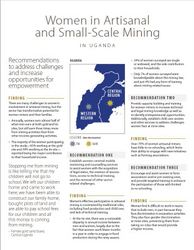
Women in ASM in Uganda: Recommendations to address challenges
November 2017
This brief highlights key recommendations to address challenges women face in the artisanal mining sector in Uganda and increase opportunities for their empowerment.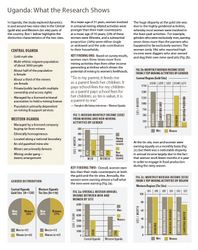
Women in Artisanal and Small Scale Mining: Uganda
October 2017
This brief highlights key findings of research studying the role of women in the artisanal mining sector. It provides a snapshot of challenges and opportunities for women’s empowerment in artisanal mining in Uganda.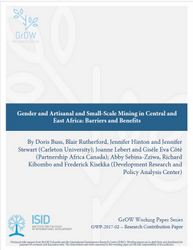
Gender and Artisanal and Small-Scale Mining in Central and East Africa: Barriers and Benefits
July 2017
A working paper produced on key findings of research into women and artisanal mining in the Great Lakes region, by Partnership Africa Canada, Carleton University, and Development Research and Policy Analysis Center for the Growth and Economic Opportunities for Women (GrOW) program.